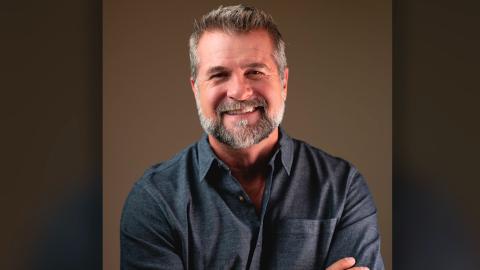
Teens and Anxiety: What Can We Do?
Is your teen a “worry wart” or on edge when there is nothing to warrant such apprehension? If he or she is exhibiting restlessness, fatigue and struggling with concentration, your child could be experiencing an anxiety disorder.
Social media, school exams, and the demands from unrealistic parents to overachieve are uniformly stressing kids out. Reports of psychological problems among teens and many adults in America have been on the rise since the 1930s, and many parents are left scratching their heads as to the reasons. Perhaps it’s tied to this statistic: the American Psychological Association found that 75 percent of adults have experienced higher levels of stress tied to political and cultural discussions on social media since 2016. What’s bad for Mom and Dad is bad for their sons and daughters, too.
Max Lucado, a pastor and New York Times best-selling author, concurs that we’re living in a nation of anxiety. In his bestselling book, Anxious for Nothing: Finding Calm in a Chaotic World, he reveals why our culture is facing unprecedented levels of anxiety and what we can do about it.
“The reason that our culture is facing unprecedented levels of anxiety, there's many, many suggestions,” he says. “But I think the two or three that make every list, at least that I've seen ... are, number one, our society.”
The world is changing faster than it ever has. We've seen more changes in the last 30 years than in the last 300 years combined. You stop and think about things that we've seen change just in our lifetime. I can remember when the fax machine was a big deal. Now I don't know anybody who owns a fax machine. That's how quickly things change.
Another complicating factor is that people can't make the distinction between anxiety and fear. Parenting is hard enough, and if the enemy can't be truly defined in this case, a solution outside of medication is nonexistent. Lucado outlines the difference between fear and anxiety clearly.
"Fear is that bolt, that jolt of emotion, that causes you to step back when you're stepping out into a crowded street,” he explains. “Anxiety says, 'I'll never go outside because there's crowded streets.' It's not quite logical. A fear can actually protect us, but anxiety -- protracted, perpetual anxiety -- can paralyze us. That's why it's really important to learn to deal with."
Once you have an understanding of what anxiety is, outside of it possibly being a chemical imbalance, opening the doors of communication will help your teen. Stay calm when your child becomes anxious. Don't minimize your children’s emotions, don't punish them when they make mistakes, and praise them for small accomplishments. Find outlets where your child can thrive and release anxiety. This can be taking music classes, art therapy, or playing sports. Also, get on their level and encourage them; they do have control of their thoughts, and those thoughts can be filtered. They may not be able to escape all problems, but they can change their perspective.
Lucado explains that we can be the air traffic controllers of our minds. "We can't control what thoughts are up in the sky, but we can control which ones we allow to land and which ones we urge to depart."
By practicing these techniques at home, you’ll help your teens to cope better with anxieties when they surface.
As Christians, we have a head start on managing our emotions in a healthy way. The Bible is full of stories about people who struggle with fear and anxiety. The Apostle Paul struggled with anxiety and gives us a timeless antidote to the malady. After being beaten, jailed and mocked Paul wrote, "Be anxious for nothing, but in everything but prayer and supplication, let your request be made to God with thanksgiving." –
Lucado also suggests that we, "Celebrate God's goodness, celebrate His sovereignty--make a big deal out of God.”
The second thing believers can do is ask God for help. Then we need to teach our teens about the gift of gratitude. Gratitude has tremendous benefits that affect our overall health. It lowers blood pressure, aids sleep, improves the immune system, and enhances the mood.
Finally, encourage teens to meditate on good things.
"Paul gives us a long list of things to meditate on. None of those are negative things. You pick what you ponder. You think about what you think about; you practice thought management," Lucado says. "Do you want to guarantee tomorrow’s misery? Then wallow in a mental mud pit of self-pity or, guilt, or anxiety today. (Assume the worst. Beat yourself up. Rehearse your regrets. Complain to complainers.) Thoughts have consequences.”
The key is not allowing these thoughts to trap one into a vicious cycle.
Keep in mind that your teen's anxiety is not a sign that you're a poor parent. Anxiety is a normal part of life and, yes, childhood. However, neither you nor your child needs to suffer. By creating a safe environment, engaging in open communication, seeking professional help, and using resources like the Bible and books offered by trusted pastors, your teen can find peace, and what parent wouldn’t find solace in this?
“The Bible's approach to helping us deal with anxieties always goes back to the existence of a good God. The big theological word is sovereignty,” Lucado says. “We trust that there's a good God reigning over the world. As people of faith, our response when anxious thoughts come is to filter those through the presence of a good God.”
Pretty sound guidance for teens and parents alike.



